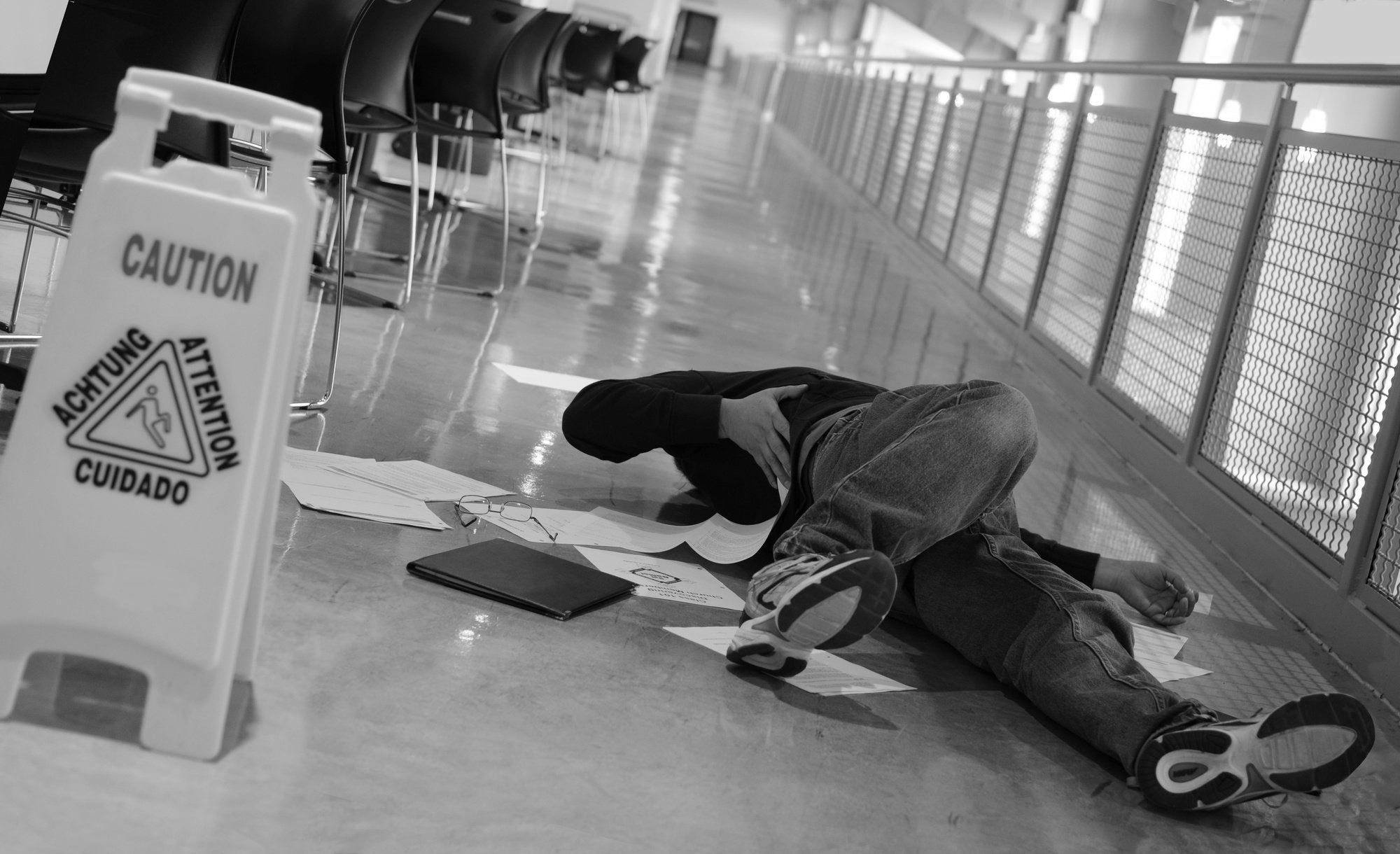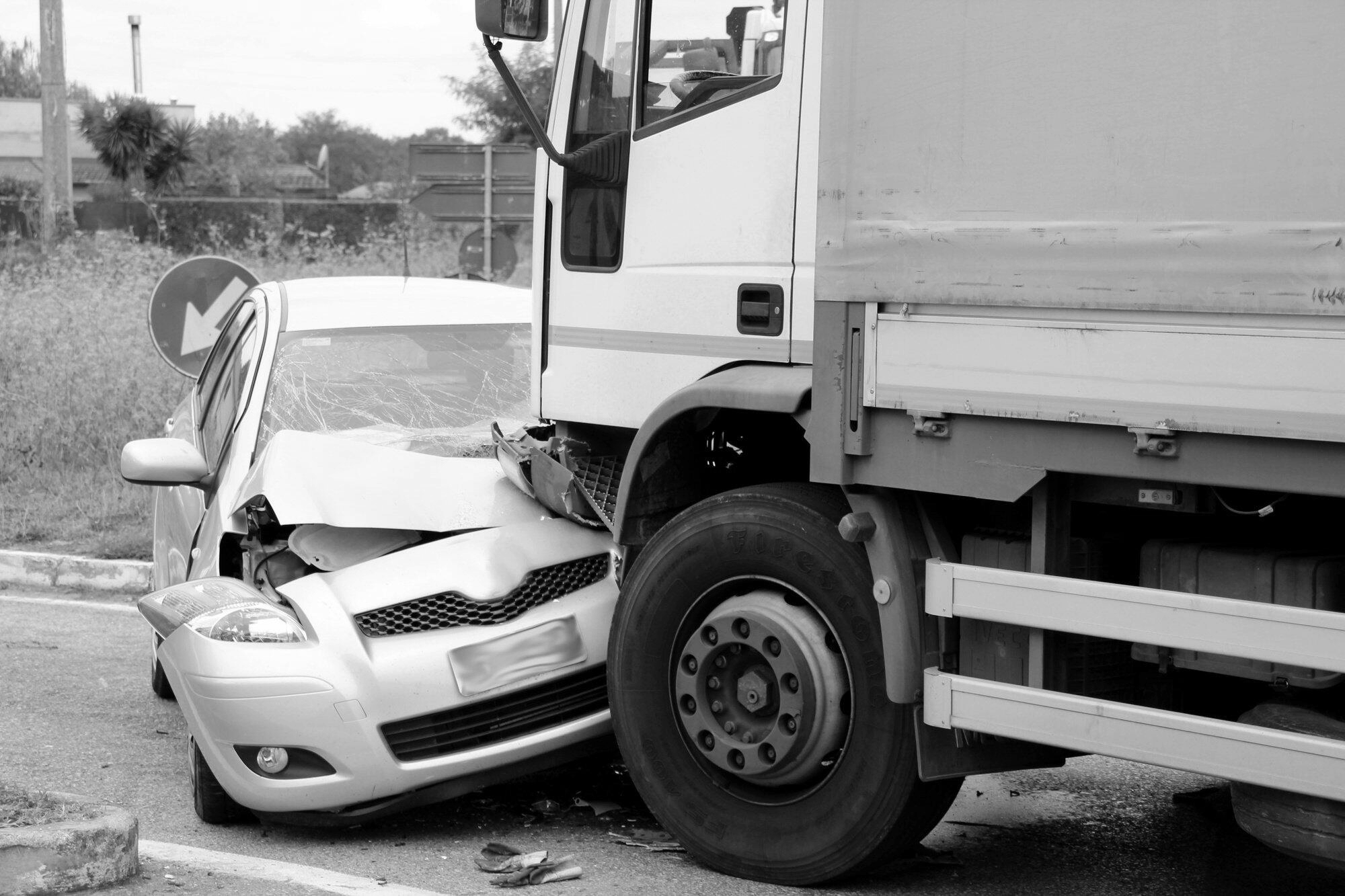
A Guide to Car Accident Lawsuits From Start to Finish.
- Home >
- Car Accidents >
- Articles >
- A Guide To Car Accident Lawsuits From Start To Finish
If you have recently been injured in a car accident, it can be challenging to know where to begin if you wish to seek compensation. As the legal procedures can be somewhat of a labyrinth, you might feel overwhelmed without expert help. Are you in the same situation and do you need a helping hand to find your way?
Below, we illuminate several steps you may undertake during car accident lawsuits. While not all lawsuits will go through the same processes, any legal steps will tend to follow a similar pattern. As you get to the end of the article, you should find what you need to get started and keep pace with the attorney you choose to work with.
Gathering Documentation and Evidence
One of the first steps you will need to undertake during the legal process is to ensure you have enough proof that you are due compensation. This collection of data will be the foundation for any argument you later intend to make, such as you not being at fault. It provides concrete evidence related to the incident and offers facts that others can take as truths.
Better evidence not only allows you to have a better chance of resolving a claim in your favor but can also ensure swift progression. You do not want to be caught up in lengthy litigation that could cause you financial issues, after all.
The following are some of the strongest pieces of evidence you can gather, so collect as many as possible. Your attorney can then process them to inform you of which are the most admissible.
Photos of the Scene
Take photographs of the accident scene from different angles as soon as you can. Try to capture as much context as possible, and gather specific details. You will want to try to check if they can show the following:
- Road signs
- Traffic signals
- Unusual road conditions
- Skid marks
- Weather
- Visibility of the surrounding road
By capturing these details, you can gain more insight into the nature of the accident. Take these photos from a range of perspectives, too, to gather a comprehensive view of the scene.
To ensure these are high-quality pieces of evidence, try to check if the photos have a time stamp and that you take them as soon as possible. Most of the time, a smartphone will timestamp a photo, though try to upload it somewhere too as soon as you can as a backup.
Photos of Car Accident Damage
To start a claim for financial compensation related to damage, gather evidence proving the accident caused it. Take photos of your vehicle as soon as you can after the incident and include the following:
- Close-ups of any damage
- Wide-angle photos of any damage
- Full-length photos of the vehicle from every angle
- Interior damage images
- Other property damage caused by the accident
- Damage to the contents of the vehicle
- Damage to any property you were carrying
Property damage may include bollards or guard rails you or others may have struck. It will also include any digital devices you may have had in a pocket or somewhere in the vehicle.
Ensure that any damage you take a photo of is consistent with the scene of the accident. If you record and present damage unrelated to the accident, it may weaken your case should the opposing party raise its relevance.
Written Statements
Gathering eyewitness accounts, including your own, is a crucial process. It can provide detailed information related to the course of events.
When recording your account, remove any emotion from how you discuss the situation. Write it down as a set of observations unrelated to your decision-making process, only what you saw. While an attorney may dig into your conclusions and actions at a later time, it is not related to this statement.
Ensure you also write down the exact time, date, and location of the incident. If you see anything you would consider unusual, including sights, sounds, and other sensations, also make note of these.
Make sure to include contact information for all people who you get statements from. This can help you later should you need to follow them up, as well as allow the courts and opposing party to contact them too.
Police Reports
When you have had an accident, you should have reported the incident to the police for their records. You can request their official report of the incident for your case.
Courts tend to consider them a trustworthy source during legal proceedings. As such, having this evidence may be crucial to proving what happened.
If there are any issues with the report, such as discrepancies or commissions, report them to the attorney you work with. They can then use them to their advantage, or prepare a response in case the opposition decides to do the same.
Medical Records
As someone injured in a car accident, you should document any injuries you have sustained and request your medical records.
Detail how the accident has changed your life. This includes anything from differences in your daily life to buying over-the-counter medicine to treat pain.
You should be aware of some of the laws related to handling medical records, though. This is especially true if someone else passes you any of their medical information to help your lawsuit. In such a situation, you should consult with your attorney to ensure you follow the law.
Other Evidence
There is plenty of other information you may want to keep an eye out for that can help your case. These are not always related to proving liability but may help you to prove your financial losses or otherwise help you in court. This may include:
Financial records. A sudden change in your pattern of income could suggest that the accident caused a shift in your ability to make money. This can be hard to prove, though, so ensure you have plenty of supporting evidence.
Correspondence records. Make sure to save and record all interactions you have with every person related to the accident, no matter how minor their part. You should also keep contemporaneous notes to offer more use to each piece of correspondence or conversation.
Choosing the Right Vehicle Accident Attorney
To ensure you have the best chance of legal success, make sure you partner with a high-quality attorney. Most legal professionals will allow you to discuss your case with them, as well as present the evidence you have. This will allow you to get a good idea of their credentials and also allow them to understand your situation and help you when moving forward.
The Role of a Vehicle Accident Attorney
An attorney in this type of case would act as both your advocate on legal matters as well as your advisor. They will work to ensure you receive the best compensation you can get and will tend to be open and honest about your chances of success.
The purpose of such a professional is also to offer you legal expertise, as handling litigation can start to get very complex. They will also have experience in dealing with insurance companies and law enforcement. This prevents you from needing to handle these organizations.
Consulting a Personal Injury Attorney
During your first meeting with an attorney, they will work with you to assess how strong your case is. This will depend on many factors, including the strength of the evidence, who you and the plaintiff are, and several other facts.
If there are specific issues related to your rights or laws and regulations you should be aware of, they will also help you learn how to navigate them. They can also often take a lot of the busywork off your hands. They will often have systems in place to handle a lot of this paperwork themselves, speeding up the process.
Researching Local Attorneys
If you have several options available to you, try to do research into who the best option is for your needs. As you will often need a lawyer well-versed in your region's laws and regulations, finding a local attorney can often help. Check online for reviews and news about their successes or failures, as this will give you a good understanding of how likely they are to win you the case.
Several resources also exist among state bar associations. They offer online directories of attorneys, as well as details related to whether they have registered to work in an area. These lists will also inform you of any ethical trouble the attorney may have gotten caught up in.
Ensure Consistent Communication
When interacting with the lawyer, keep an eye on whether they maintain communication. If you find yourself having to follow up a lot, it may cause further issues later on. If they take long enough, you may find the statute of limitations for your accident passes by.
Your attorney should also be accessible. Make sure they keep you in the loop by explaining legal terms and not always using jargon. This will give you a better chance at keeping up when the case begins.
Determining If You Have a Valid Claim
Your attorney will be able to inform you of whether you have a valid claim. They will compare the legal feasibility of your case with the type of challenges to your claim they expect to occur. They should have the capacity to tell you your likely payout, informing you of whether your time and money are worth it.
Discussing Legal Fees
When pursuing your legal case, you should discuss payment terms and options with the attorney. Make sure you have a good understanding of how much you can expect to pay for the case, and compare it to your budget.
You may also want to ask whether you can use other payment options, such as spreading the cost over time. They may even offer a "no-win-no-fee" option, but this is not available from all attorneys.
With all the information available to you, you can then weigh up the potential benefits of a lawsuit against these costs. This will help you find the best lawyer who will suit your case and personal circumstances.
Building a Strong Evidence Base
Once you have hired a car accident lawyer, you will have more options available to you when it comes to attaining extra evidence. Many of these would have been more difficult to either find or secure without a legal expert. With them, you can start to build a more comprehensive evidence collection and may have a better chance of success.
An attorney will also understand much more about the process by which you should record evidence. They will record who handles the evidence and when. This ensures there is no tampering, which could negatively affect your case.
Attaining Video or Security Evidence
As well as your dashcam footage (if any), an attorney can provide documentation that will make it easier to get local security footage. Make sure you do this fast, though, as many locations record over previous footage or delete it now and then.
A lawyer can then analyze the footage in detail to learn crucial facts that could help you. They will also have ways to confirm how authentic the footage is. This prevents the defense from suggesting it is inadmissible.
Contacting Reconstruction Experts
If necessary, a lawyer can communicate with accident reconstruction experts. Using all the information available, they will be able to recreate the scene and provide a clear picture of the events.
In court, these people can offer expert testimony. Thus, they can strengthen your case and clarify the specifics of the accident. Witnesses such as this are often respected as the court tends to consider them unbiased third parties.
Determining Liability and Fault
All the evidence you collect comes together to prove who was at fault. It will also show the damages the defendant caused you, creating a clear amount you deserve as compensation.
Attorneys can look at all your evidence and inform you of how much every person in the accident is liable for. They can also inform you of how much they expect you will receive, based on this liability. This allows you to move forward in a position of knowledge.
Interviewing Other Eyewitnesses
Attorneys have networks they can use to try to find more witnesses to events. These may be people who the police talked to but who later left the scene, or others in the area who may have seen the incident.
Using these resources, you can often gather more witness testimonies than you were able to source on your own. Thus, you can continue to grow your evidence collection.
Identifying the At-Fault Driver
On top of looking at reports related to the scene of the accident, an attorney may be able to source information related to the plaintiff. This might include prior driving issues, such as speeding or intoxication. They can then use these to build a profile they can use to assign more fault to the other party.
This leads to a concept called "comparative negligence". It means that the evidence you and your lawyer collect can create an allocation of fault and is often represented as a percentage.
In such a situation, the courts weigh any compensation based on the percentage. If, for example, there is $10,000 in compensation offered, but the court considers you 20% at fault, you will then only receive $8,000.
This means you are not disqualified from compensation if you did anything wrong. It does mean, though, that it takes the whole event into account, creating what the courts to be a fairer payout.
Filing Car Accident Lawsuits
After you ensure you have all the evidence, your attorney can draft a legal document called a complaint or a petition. This will formally begin the process of pursuing a lawsuit from the point of view of the courts.
The choice you have will depend on the location of the accident, as well as where each party resides. In some cases, it may even depend on the amount of damages you are claiming.
The lawyer can then take the complaint and ensure the court processes it. After this, you will receive a specific case number and often learn of the judge who will preside over the case. You can then serve this complaint along with a "summons" issued by the court to the defendant.
Serving the Lawsuit to the Responsible Party
The exact details of how to serve a summons will depend on the specific location you serve it in. This ensures the defendant receives lawful notification of the lawsuit. You will also have evidence that they understand their responsibilities.
Finding the Defendant's Contact Information
In some cases, you may not know the defendant's contact details with which you can serve them the summons. If this is the case, there are several options available to you, that an attorney will be able to help with. These include:
- Searching through public records
- Hiring a private investigator
- Reaching out to an insurance company
The methods that an attorney will use will be legal and respectful of the defendant's rights. This ensures you do not get into trouble while pursuing justice.
Using a Process Server or Sheriff to Serve the Document
In the case where you need an individual to serve the documents, there are a few options available to you. In many situations, you can use a professional process server. These people will have the legal right to serve a summons, helping you by providing records of the incident.
Another option is to work with the sheriff's office. Depending on their reliability and availability, they may be able to perform this role for you.
Ensure Proof of Service
It is a legal necessity that you have proof of service to move forward with a lawsuit. Make sure that this documentation includes the place, time, and manner of service to make sure all the data is accurate. This will help you to avoid disputes where the defendant suggests they never received notice.
Receiving the Defendant's Response
After you serve the complaint, the defendant has a set number of days to respond depending on the nature and jurisdiction of the case. They will file this case with the court and can take a range of forms, including:
Answer. They may choose to respond to the allegation, either admitting or denying it. They may also claim they have insufficient knowledge to respond.
Motion to Dismiss. If the defendant believes the complaint is not legally sound or lacks jurisdiction, they may file a motion to dismiss the case. You should consult with your attorney about what to do should this occur.
Counterclaim. In some cases, the defendant may decide to file their own case, alleging a whole different set of claims.
No matter the form the response takes, it is proof that the defendant has received and responded to the claim. You can then begin to build a legal strategy, starting with discovery.
Engaging in the Discovery Process
The discovery phase allows both parties to gather more evidence related to the case. Having filed the case with the courts, you can start to investigate angles that would have not been available to you before.
Requesting Documents From the Other Party
At this stage, you can start to send formal requests to the other party of records they may have. These can include:
- Insurance records
- Medical reports
- Vehicle repair records
- Photographs of the scene
You need to ensure you are specific about the types of documents you are requesting. An opposing attorney may refuse to give you evidence you are not specific about as it can be seen as "searching for evidence". In theory, you should have a reasonable reason to request each piece.
Sending Interrogatories
Interrogatories are lists of questions you want answered by the defendant. These should relate to the case at hand and it is a good idea to frame them to receive detailed responses. This can offer you the highest likelihood of giving you data that can help your case.
In some situations, the courts may limit the number of questions you can ask based on the jurisdiction and type of case. In most situations, though, you should ensure your request is not burdensome.
Undertaking Depositions
These are witness testimonies that occur under oath. They will involve the taking of a sworn oral statement from a witness, though will not occur in court. You can use these to gather more evidence, and the deposed individual may always have their attorney present.
During the deposition, the witness, whether the defendant or not, may be cross-examined. The information gathered during such questioning can act as evidence in the case, and as such the normal rules for evidence apply. You should be aware that attorneys can object to specific questions or lines of questioning, but that the defendant can still answer.
Responding to Interrogatories and Depositions
If you need to respond to any interrogatories or depositions, do so in a reasonable timeframe. Make sure your responses are accurate, and present them professionally. Also, ensure you talk to your lawyer to help you avoid harming your case with your responses.
Providing Requested Evidence
If you need to provide evidence the defendant requests, do so in an organized and accessible format. Make sure you adhere to any reasonable deadlines the defendant sets, and give them only what they ask for.
When it comes to sensitive information, work with your attorney to work out what you do or do not need to secure. You should be able to then offer it while maintaining things like attorney-client privilege.
Maintaining Clear Evidence Records
When you send off or collect evidence, make sure to make backup copies, though, and keep a log of everything you send. You must have a record of who has any piece of evidence at any time, so you can prove it nobody has tampered with it.
Planning Legal Strategies
As you collect the last of this evidence, you can start to build your starting case into a more robust form. Work with your attorney to create a case theory, an accurate story of what happened from your point of you. This is what you will present to the court and will make up the core of your case.
Make sure to understand the strengths and weaknesses of your case. Knowing which evidence and witnesses are the most credible and why can ensure you have a better idea of when to present them.
You will also need to ensure you know what your legal arguments are and when you or your lawyer should present them. This will allow you to maintain a good understanding of what is happening at any time in case you need to pivot or change your strategy.
Understanding Insurance Company Involvement
Your claim payout will likely come from insurance companies. As you need to understand who you are dealing with, learn which insurance company the defendant uses. You can then also research the policy the defendant has in detail.
Learn what negotiation tactics and claim responses the company tends to use too. These will allow you to prepare for these either during settlement discussions or in court later.
Managing Emotional and Psychological Impact
Lawsuits are not simple processes. Winning or even losing one can be a large burden off your shoulders. Still, while pursuing it, you may need emotional support if it impacts your mental health.
Handling Your Own Stresses
Make sure to prioritize your emotional well-being at all times. If you are having problems, discuss them with your attorney. They may be able to find a way to help you or petition the court for aid.
If necessary, look into professional therapy to help you build healthy coping strategies. These can help you manage stress, anxiety, or even trauma stemming from the accident.
Make sure that you have a support system, though. Try to find friends, peers, or family you can discuss the case with who will be non-judgemental. They can offer help you may not get elsewhere.
Using These Feelings During the Trial
While it may seem callous, use the emotions you feel to create a more impactful testimony. Your emotional circumstances are a piece of evidence, especially if you have records from a psychiatrist or therapist. Such a testimony also personalizes the case and can help the judge or jury relate to you.
Negotiating a Settlement
Before your case goes to court, the defendant may approach you with a settlement, or an offer to negotiate. This is an offer to resolve the case before you go through what may be a lengthy and costly legal process.
How to Negotiate a Settlement
Make sure that you prepare beforehand, much as you would for a court case. You will often use similar evidence in such a situation, though it is sometimes useful not to tip your hand by only hinting at such facts.
Before you sit at the negotiating table, though, make sure that you have a sensible goal in mind. Know what you would consider an acceptable settlement amount, and discuss how likely it is with your attorney. That way, you can go in knowing what success will look like to you.
When in negotiation, make sure you present a strong case to the opposing side or allow a professional attorney to do this for you. Make sure you also engage in active listening and other positive communication strategies. These will help you understand the situation in full.
When you receive an offer, remember that in most cases, you do not need to accept it then and there, though. You are likely better off discussing the situation with your lawyer in private before you sign anything.
Post-Settlement Actions and Closure
After you have settled, make sure to formalize the terms of the agreement in a legally binding document. Also, ensure you understand all the terms involved, asking for help from your attorney if necessary. They can likely help you know what your responsibilities will be, if any.
When you have settled, you will likely then "discharge" all claims. This means the court case will not proceed, and you will no longer be able to pursue legal action related to the raised claims. There may be other limitations depending on the agreement.
If you do not come to a settlement, though, you will need to go to trial to resolve the case.
Trial Preparation Steps
If all other steps fail to resolve in a reasonable conclusion, you will need to go to court. Make sure that you have:
- Information on the court date and location
- All evidence necessary for the court case filed
- A solid legal strategy and contingency plans
- Knowledge of the case and any precedent cases
While this list is non-exhaustive, it should offer you a good chance of having most of the documents and information you need in the courtroom.
Preparing Exhibits and Presentations
When preparing evidence, make sure it exists in a clear and concise format. Create visual aids if necessary, such as:
- Charts and graphs
- Accident reconstructions
- Event timelines
These will allow the judge or jury the best chance of understanding your case story.
Reviewing the Opposing Party's Evidence
Before the court date, you will receive information related to all the evidence the opposing party files. You can then analyze it for any weaknesses you may find, such as its admissibility, or for any inconsistencies they suggest in their case story.
You can also often use the evidence they have to adjust your case strategy. Use it to prepare for the angle they are likely to take and prepare to object or respond to it as is appropriate.
Preparing Witnesses
Before the trial, select the witnesses you intend to talk to in court. Make sure they are both credible and relevant and will offer you a better chance of success. If necessary, conduct mock testimonies with these people to prepare them for court, but take care not to coach them in what to say.
Planning Cross-Examinations
Make sure you know how you intend to cross-examine witnesses. Try to weaken their credibility if they are opposing your case story, and if possible, use them to help your own.
Make sure you remember the rules for cross-examining, though. There are both legal and ethical boundaries you should not cross, which the defendant may choose to object to if you do.
Process for Attending Trial
Make sure you understand the procedures of a trial. Know what sequence of events will occur, as well as the roles of each of the participants. If possible, get photos of each person, so you can identify them by sight to make things easier for you.
Checking In at the Court
Arrive promptly to the court, ready to follow through with the proceedings. Courts expect you to remain respectful for the time of those in court, and tardiness is not tolerated.
Courtroom Etiquette as a Claimant
Dress professionally and behave respectfully towards every person in the court. This includes the defendant and their counsel.
When speaking, do so in a clear and composed manner, and appear professional at all times. If you work with an attorney, make sure to follow their advice and instructions to avoid making mistakes.
Make sure to also turn off your smartphone. A device going off in court is not only embarrassing but often a source of frustration for the judge and jury.
Understanding Important Details
As the case continues, make sure to either make notes related to or remember important details., These might include:
- The case timeline as evidence is presented
- Legal concepts that people raise in court
- Any evidence that has repercussions you did not expect
- Useful or strange turns of phrase witnesses use
- Notes related to unexpected developments
Each of these may help you to adapt to situations as they evolve.
The Attorney's Responsibility: Presenting a Compelling Argument
When you hire an attorney, they may take responsibility for several areas of the case, including the trial. They will often be the person responsible for presenting a set of coherent arguments to the judge or jury. The lawyer will try to use these to communicate why your case has merit and you deserve compensation.
They will also then respond to any challenges offered by the defendant. They will do this by following courtroom processes and etiquette, doing what is necessary to give you the best chance of success.
An attorney will also have a good understanding of the ethical standards one can be expected to follow in a courtroom. This can help you avoid faux pas or other issues in the court.
Post-Trial Steps
Even after your trial ends, you may have more steps to take. These may depend on whether you succeeded.
Discussion With Your Attorney
After the trial has concluded, you should discuss the situation with your lawyer. They will be able to describe the implications of the judge's decision, as well as the options it leaves you with.
Further Settlement Possibility
In some cases, even partway through a longer case, the defendants may offer you a settlement. You may choose to take this at any time, at which point, if there are no further undischarged claims, the case will close.
Possibility of Appeal
No matter the outcome of the case, there is a chance that you or the defendant may appeal. This is a process that allows them to question the merits of the outcome. It is not always successful but may lead to further courtroom processes.
Ensuring Swift and Professional Justice
Our guide to car accident lawsuits should have illuminated each step you need to take to pursue your legal options. Doing this, though, demands a skilled and professional attorney to help you with the intricacies of the process. Here at Roberts Lambert, we can give you what you need.
Our legal expertise can help you get the best chance of receiving the compensation you deserve. So, book a consultation today and we can give you the best advice on your next steps.
Meet the author.







